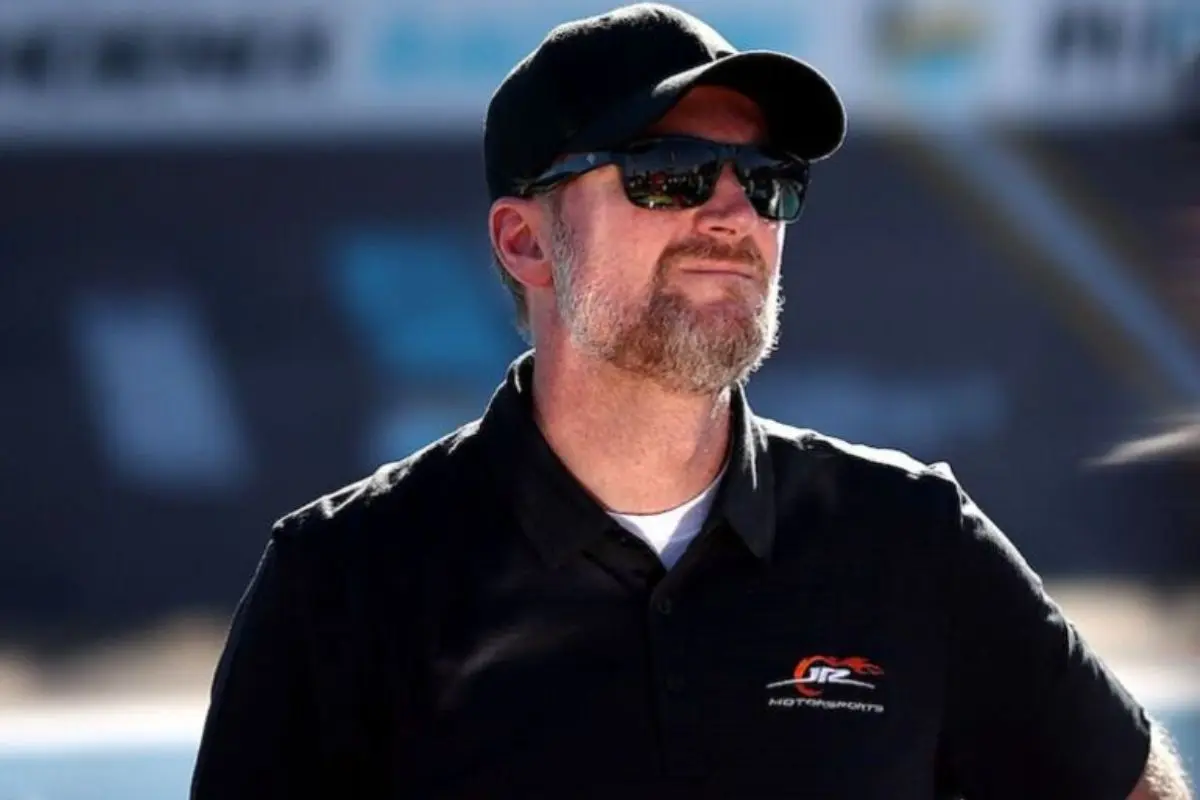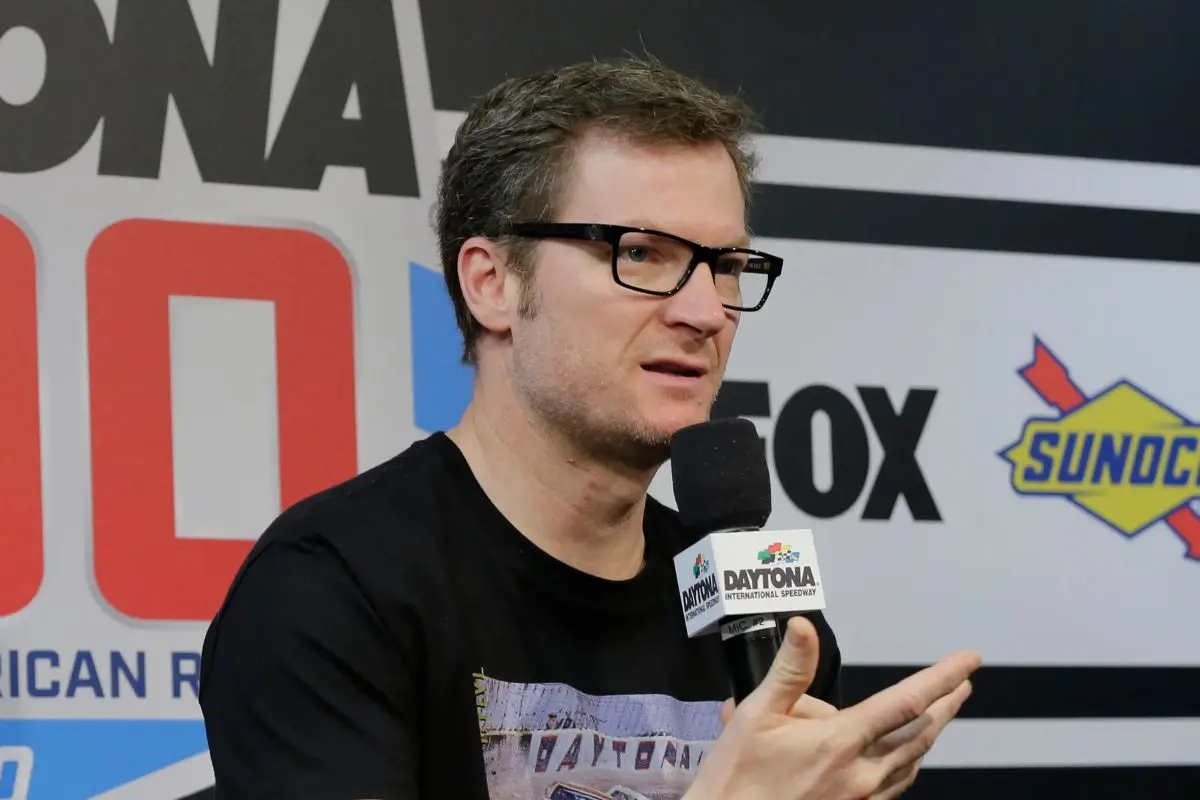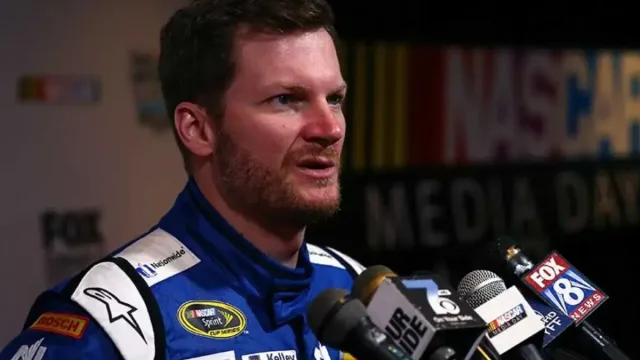Key Highlights
- Dale Earnhardt Jr. expresses reservations about the increasing number of road courses in NASCAR’s schedule.
- He prefers traditional circuits like short tracks, Daytona, and Talladega over road courses.
- Earnhardt Jr. acknowledges market-driven decisions influencing NASCAR’s shift towards more road courses.
- Road courses are crucial for NASCAR’s global expansion, especially in regions without oval tracks.
- He suggests Brands Hatch in the UK as a potential international road course venue for NASCAR.
NASCAR’s International Ambitions
As NASCAR endeavors to expand its global footprint, the organization is leveraging a range of tactical initiatives aimed at capturing international audiences. Distinctly, NASCAR is investing in lucrative multi-billion dollar media rights deals designed to broadcast its races beyond American borders.
The introduction of Next-Gen cars, engineered to excel on road courses, marks a tactical shift, positioning the sport to appeal to diverse racing enthusiasts worldwide. Additionally, the decision to hold a Cup Series race at Mexico City’s Autódromo Hermanos Rodríguez highlights NASCAR’s commitment to infiltrating new markets.
Despite these efforts, NASCAR’s global reach lags behind that of motorsport giants like Formula 1 and IndyCar, which have already established a noteworthy international presence. The sport remains mainly U.S.-centric, necessitating additional tactical maneuvers to genuinely capture global interest.
 Hendrick Motorsports” width=”1200″ height=”800″ srcset=”https://slicksandsticks.com/wp-content/uploads/2025/02/Hendrick-Motorsports-to-Host-Cadillacs-F1-Base-in-a-Deal.webp 1200w, https://slicksandsticks.com/wp-content/uploads/2025/02/Hendrick-Motorsports-to-Host-Cadillacs-F1-Base-in-a-Deal-300×200.webp 300w, https://slicksandsticks.com/wp-content/uploads/2025/02/Hendrick-Motorsports-to-Host-Cadillacs-F1-Base-in-a-Deal-1024×683.webp 1024w, https://slicksandsticks.com/wp-content/uploads/2025/02/Hendrick-Motorsports-to-Host-Cadillacs-F1-Base-in-a-Deal-768×512.webp 768w, https://slicksandsticks.com/wp-content/uploads/2025/02/Hendrick-Motorsports-to-Host-Cadillacs-F1-Base-in-a-Deal-630×420.webp 630w, https://slicksandsticks.com/wp-content/uploads/2025/02/Hendrick-Motorsports-to-Host-Cadillacs-F1-Base-in-a-Deal-150×100.webp 150w, https://slicksandsticks.com/wp-content/uploads/2025/02/Hendrick-Motorsports-to-Host-Cadillacs-F1-Base-in-a-Deal-696×464.webp 696w, https://slicksandsticks.com/wp-content/uploads/2025/02/Hendrick-Motorsports-to-Host-Cadillacs-F1-Base-in-a-Deal-1068×712.webp 1068w” sizes=”auto, (max-width: 1200px) 100vw, 1200px” />
Hendrick Motorsports” width=”1200″ height=”800″ srcset=”https://slicksandsticks.com/wp-content/uploads/2025/02/Hendrick-Motorsports-to-Host-Cadillacs-F1-Base-in-a-Deal.webp 1200w, https://slicksandsticks.com/wp-content/uploads/2025/02/Hendrick-Motorsports-to-Host-Cadillacs-F1-Base-in-a-Deal-300×200.webp 300w, https://slicksandsticks.com/wp-content/uploads/2025/02/Hendrick-Motorsports-to-Host-Cadillacs-F1-Base-in-a-Deal-1024×683.webp 1024w, https://slicksandsticks.com/wp-content/uploads/2025/02/Hendrick-Motorsports-to-Host-Cadillacs-F1-Base-in-a-Deal-768×512.webp 768w, https://slicksandsticks.com/wp-content/uploads/2025/02/Hendrick-Motorsports-to-Host-Cadillacs-F1-Base-in-a-Deal-630×420.webp 630w, https://slicksandsticks.com/wp-content/uploads/2025/02/Hendrick-Motorsports-to-Host-Cadillacs-F1-Base-in-a-Deal-150×100.webp 150w, https://slicksandsticks.com/wp-content/uploads/2025/02/Hendrick-Motorsports-to-Host-Cadillacs-F1-Base-in-a-Deal-696×464.webp 696w, https://slicksandsticks.com/wp-content/uploads/2025/02/Hendrick-Motorsports-to-Host-Cadillacs-F1-Base-in-a-Deal-1068×712.webp 1068w” sizes=”auto, (max-width: 1200px) 100vw, 1200px” />
Shane van Gisbergen’s Influence on NASCAR
Shane van Gisbergen’s impact on NASCAR has been revolutionary, highlighting the potential for international appeal within the sport. His shift from a three-time Supercars Champion to a formidable presence in NASCAR has signaled a change in the dynamics of racing.
Van Gisbergen’s notable Cup Series debut victory at the Chicago Street race catapulted NASCAR into the global spotlight. His continued success in the Xfinity Series, with three wins in 2024 at Portland, Sonoma, and Chicago, highlights his ability to adapt and dominate.
- Expansion of Road Courses: His victories have led to increased road course events on the NASCAR calendar, critical for global expansion.
- Elevating NASCAR’s Global Profile: Van Gisbergen’s success stresses NASCAR’s potential to attract international audiences.
- Tactical Racing Adaptations: His style promotes tactical changes in NASCAR racing formats.
- Inspiration for Future Racers: His achievements inspire racers worldwide to reflect on NASCAR as a viable career path.
Dale Jr’s Take on Road Courses and Expansion
Dale Earnhardt Jr., a veteran and influential figure in NASCAR, has expressed his reservations about the increasing prevalence of road courses in the racing calendar.
“I think for NASCAR to achieve this idea of becoming more international, it’s got to happen on the road courses. I just don’t see any other route. That means there will be more road courses likely added and maybe it’s not as many as I think, maybe it’s just a couple.” – (Dale Earnhardt Jr.)
Despite his admiration for short tracks and iconic circuits like Daytona and Talladega, Earnhardt Jr. acknowledges that the market ultimately dictates racing formats. He candidly admits, “I don’t love road courses,” a sentiment reflected in his performance stats.
“Listen, I’ve said it before, road courses are not, I don’t love road courses as much as I love short tracks or a mile-and-a-half or Daytona or Talladega.” – (Dale Earnhardt Jr.)
Among his 26 Cup Series victories, none occurred on road courses, with an average finish of 20.3 in such races. His best result was a bronze finish at Sonoma in 2014, with only two other top-five finishes at Watkins Glen in 2003 and 2004.
Nevertheless, as co-owner of JR Motorsports, he recognizes the inevitability of road courses playing a crucial role in NASCAR’s future expansion. Earnhardt Jr. concedes that if fan interest leans towards road courses, NASCAR will likely adopt this direction.

Why NASCAR’s Global Expansion Will Depend on Road Courses
NASCAR’s potential global expansion hinges considerably on the accessibility and appeal of road courses. This tactical direction is largely driven by the scarcity of oval tracks in regions like the Middle East, Asia, and Australia.
Furthermore, the existing infrastructure for Formula 1 races provides a ready-made platform for NASCAR to capitalize on, allowing seamless integration of stock car racing into these venues. This shift from traditional ovals to road courses could redefine the sport’s international footprint.
- Infrastructure Availability: Road courses benefit from existing world-class facilities.
- Geographical Constraints: Oval tracks are rare outside North America.
- Cultural Appeal: Road courses align with global racing traditions, increasing local fan engagement.
- Tactical Testing Grounds: Events like ‘The Clash’ could test international waters without impacting the main season.
While traditional tracks like Daytona and Charlotte maintain their historic significance, road courses may be pivotal for NASCAR’s worldwide growth.
Dale Jr’s Preferred Venue for NASCAR’s Global Expansion
While Dale Earnhardt Jr. may express a neutral stance towards NASCAR’s potential global expansion, he has nevertheless offered a specific suggestion for a venue that could serve as a calculated starting point.
The NASCAR Hall of Famer, despite his indifference, identified Brands Hatch in the United Kingdom as a prime location for international competition. This track, renowned for hosting IndyCar events and the former British Grand Prix, presents a short-track road course ideal for introducing stock car racing to a broader audience.
“If they take the Clash overseas, I think that one track that they absolutely should look at is Brands Hatch.” – (Dale Earnhardt Jr.)
Earnhardt Jr.’s endorsement of Brands Hatch highlights its tactical significance, potentially providing an engaging and challenging environment for drivers while attracting new fans.
Although he remains ambivalent about overseas expansion, Earnhardt Jr. acknowledges NASCAR’s intent to investigate global opportunities, with Europe and Brazil frequently mentioned in discussions.
“I don’t care if my Cup racing goes overseas. I’m not for it or against it. It doesn’t excite me, you know, but I’ll watch it. But I’m not going to be sad if it doesn’t happen. Does that make sense?” – (Dale Earnhardt Jr.)
“NASCAR would love to race in Europe or, you see Brazil in the conversation on social media. And that is something we are absolutely going to see in the future.” – (Dale Earnhardt Jr.)
It is yet to be determined if NASCAR will adopt his suggestion and experiment with Brands Hatch as a part of their international plan.

News in Brief: Dale Earnhardt Jr. Warns NASCAR’s Worldwide Plans
NASCAR’s pursuit of international expansion is markedly influenced by the adoption of road courses, a format showed by Shane van Gisbergen’s impact. Dale Earnhardt Jr. highlights the importance of these courses, viewing them as essential to broadening NASCAR’s global footprint.
He believes that tactical venue selection will be vital in this endeavor, advocating for locations that improve NASCAR’s appeal worldwide. This approach aims to draw new audiences while respecting the sport’s traditional roots, balancing innovation with heritage.
ALSO READ: Dale Earnhardt Jr Shares Iconic Daytona 500 Moment With Chase Elliott Ahead of 2025
